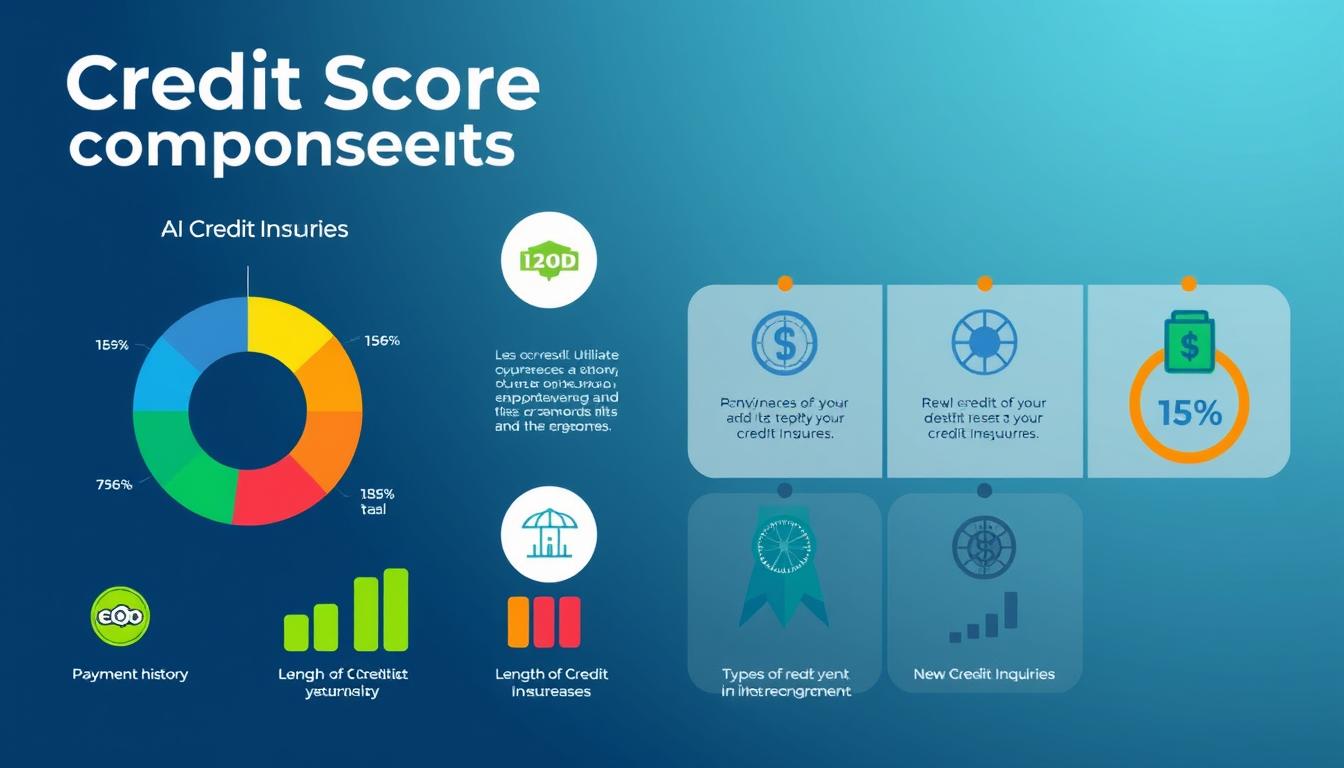An exceptional 800 credit score is a remarkable achievement. It significantly boosts your borrowing power and opens doors to various financing opportunities.
This elite credit profile allows access to low-interest mortgages and favorable terms on loans. Understanding the benefits of an 800 score helps maximize your borrowing capacity.
Key Takeaways
- An 800 credit score is considered an exceptional rating that can unlock a broad range of borrowing opportunities.
- With an 800 credit score, you may qualify for the best interest rates and loan terms across various types of financing, such as mortgages, auto loans, and personal loans.
- Lenders view an 800 credit score as a strong indicator of creditworthiness, making you an attractive borrower.
- However, your borrowing power is not solely determined by your credit score and may also depend on factors like your debt-to-income ratio and the lender’s specific requirements.
- Maximizing your borrowing power with an 800 credit score involves maintaining a good credit history, reducing existing debts, and finding the right lender.
What is an 800 Credit Score?
An 800 credit score is the highest tier in the credit score range. It shows responsible financial habits and careful credit management. This top rating opens doors to great borrowing opportunities.
Understanding Credit Score Ranges
Credit scores in the U.S. typically range from 300 to 850. Higher scores mean lower risk for lenders. A score of 800 or above is considered excellent.
This elite status offers many financial perks. It can help you get the best rates on mortgages and auto loans. You may also qualify for top credit card offers.
Factors That Influence Your Credit Score
- Payment History: On-time payments are crucial. They make up 35% of your overall score.
- Credit Utilization: Keep card balances low, ideally below 30% of your credit limit.
- Length of Credit History: A longer history shows you can manage credit well.
- Types of Credit Used: A mix of credit accounts can boost your score.
- New Credit Applications: Too many new applications may lower your score temporarily.
Understanding these credit score factors is key. Consistent, responsible credit behavior can help you reach the top credit score range.

The Benefits of an 800 Credit Score
An 800 credit score brings many perks to your financial life. It opens doors to the best lending terms. This high score can help you reach your money goals faster.
One key benefit of an 800 credit score is getting the lowest interest rates. This applies to mortgages, auto loans, and personal loans. Lenders see you as low-risk, offering you better rates.
With this score, you can also borrow higher loan amounts. Lenders trust you more due to your good financial track record. This helps when buying big items like homes or cars.
An 800 credit score makes getting approved for financial products easier. You’ll likely get the best terms for credit cards, loans, or mortgages. Often, you won’t need extra collateral.
“An 800 credit score opens doors to the best financial opportunities and can provide a significant competitive edge in the lending landscape.”
Your high score can also lower your insurance costs. Many insurers use credit-based scores to assess risk. Higher scores often mean lower rates for auto, home, or life insurance.
In short, an 800 credit score greatly impacts your finances. It helps you save money and secure better financial deals. This score can lead to a more stable financial future.

Types of Loans Available With an 800 Credit Score
An 800 credit score opens doors to various loan options. These include mortgages, auto loans, and personal loans. Each loan type offers unique features, rates, and limits.
Mortgages
With an 800 credit score, you’ll qualify for top mortgage rates. Lenders view you as a low-risk borrower, making you ideal for various mortgage products. You might borrow millions for a home purchase or refinance.
Options include conventional, jumbo, and government-backed loans. Your financial situation determines how much you can borrow.
Auto Loans
An 800 credit score helps secure great auto loan terms. Lenders will likely offer you the lowest interest rates available. This keeps your monthly payments low.
You may borrow up to 100% of the vehicle’s value. This depends on your income and other financial factors.
Personal Loans
Personal loans are another option for 800 credit score borrowers. These unsecured loans can fund various needs like debt consolidation or home improvements.
With an 800 score, you’ll access the lowest rates and highest limits. You could potentially borrow up to $100,000 or more.
| Loan Type | Maximum Loan Amount | Interest Rate Range |
|---|---|---|
| Mortgage | Several million dollars | Lowest market rates |
| Auto Loan | Up to 100% of vehicle value | Lowest market rates |
| Personal Loan | Up to $100,000 or more | Lowest market rates |

Your exact loan terms depend on various factors. These include income, existing debt, and other financial considerations. Compare offers from multiple lenders to get the best deal.
How Much Money Can I Borrow With a 800 Credit Score?
An 800 credit score unlocks numerous borrowing opportunities. Your borrowing limit depends on income, existing debts, and loan type. With this score, you’ll likely qualify for higher loan amounts than those with lower scores.
Lenders view borrowers with 800 credit scores as low-risk. This high rating shows responsible financial management and timely payments. It also indicates a healthy debt-to-income ratio.
As a result, lenders often offer these borrowers maximum loan amounts. They typically provide the most favorable interest rates and terms too.
| Loan Type | Maximum Loan Amount (800 Credit Score) |
|---|---|
| Mortgage | $750,000 – $1,000,000 |
| Auto Loan | $50,000 – $75,000 |
| Personal Loan | $50,000 – $100,000 |
These figures are general guidelines. Actual maximum loan amounts may vary based on your financial profile. Lender criteria also play a role in determining your loan amount.
An 800 credit score gives you a significant advantage. It boosts your borrowing capacity and opens up more financial opportunities.

“An 800 credit score is the gold standard for borrowing. Lenders view you as a reliable and trustworthy borrower, and they’ll be more willing to extend the maximum loan amounts you’re eligible for.”
Calculating Your Debt-to-Income Ratio
Lenders examine your debt-to-income (DTI) ratio alongside your credit score. This metric shows how much of your monthly income goes to debt payments. It helps determine how much more debt you can handle.
Importance of Debt-to-Income Ratio
Your debt-to-income ratio divides total monthly debt payments by total monthly gross income. It gives lenders a clear picture of your financial health. A lower DTI ratio means you have more income for new payments.
A healthy debt-to-income ratio boosts your borrowing power for various loans. Understanding and calculating your DTI can lead to better financial success. It can also help you secure more favorable loan terms.
Most lenders prefer a DTI ratio of 43% or less. Some may allow higher ratios based on your overall financial profile. Managing your DTI calculation can increase your approval chances and loan terms.
A solid debt management strategy is crucial for a healthy debt-to-income ratio. Keep an eye on your debts and make timely payments. Look for ways to reduce your overall debt burden.
Factors Lenders Consider Beyond Credit Score
An 800 credit score is impressive, but lenders look at other factors too. These additional criteria help determine your creditworthiness and borrowing capacity.
Lenders often examine your financial profile in detail. They consider factors beyond your credit score.
- Employment history – Lenders seek a stable work record. This shows your ability to earn reliable income.
- Income – Your current and future earnings matter. They show if you can make timely loan payments.
- Assets – Savings and investments are important. They provide a financial safety net.
- Loan purpose – Why you need the loan affects decisions. It could be for a home or business venture.
These factors beyond credit score give lenders a fuller picture. They help assess your ability to repay the loan.
This approach aids in making informed decisions. It helps determine loan approval and appropriate lender criteria.
“A high credit score alone doesn’t guarantee loan approval. Lenders want to see a complete picture of your financial health and stability.”
An 800 credit score is great, but it’s not everything. Lenders consider many aspects of your finances.
Understanding these factors can help you prepare better. It can strengthen your case for getting the financing you need.
Tips for Maximizing Your Borrowing Power
An 800 credit score unlocks exceptional borrowing opportunities. To maximize your borrowing power, focus on maintaining good credit and reducing debts. These steps will help you achieve your financial goals.
Maintain a Good Credit History
Preserving a strong credit history is crucial for maximizing borrowing power. Monitor your credit reports regularly and address discrepancies promptly. Make all payments on time to show lenders your creditworthiness.
This responsible credit management can lead to favorable loan terms. It also positions you for higher borrowing limits in the future.
Reduce Existing Debts
Reducing your existing debts can significantly boost your borrowing capacity. Focus on paying off high-interest obligations, like credit card balances. This frees up available credit and improves your debt-to-income ratio.
This strategy strengthens your financial profile. It also shows your commitment to debt reduction strategies.
These tips will help you maximize your borrowing power. Your 800 credit score is a powerful asset. Use it wisely to achieve your long-term financial goals.
Risks of Borrowing Too Much
An 800 credit score offers great borrowing chances. But be careful not to borrow too much. Taking on excess debt can lead to a dangerous debt trap.
Overwhelming payments can harm your finances. It’s vital to avoid this situation through smart money management.
Avoiding Debt Traps
To avoid debt traps, practice responsible financial planning. Here are some key tips to keep in mind:
- Assess your borrowing needs carefully: Determine the minimum amount you require to achieve your goals, and resist the temptation to borrow more than necessary.
- Maintain a manageable debt-to-income ratio: Ensure that your monthly debt payments do not exceed a sustainable percentage of your income, typically recommended to be below 43%.
- Create a realistic budget and stick to it: Closely monitor your spending and make adjustments to accommodate your debt obligations without compromising other financial priorities.
- Build an emergency fund: Having a cushion of savings can help you weather unexpected expenses and avoid relying on additional borrowing during times of financial strain.
Borrow responsibly to enjoy your high credit score’s benefits. Maintain a healthy financial planning strategy to avoid over-borrowing.
Smart money choices help you steer clear of debt traps. Stay focused on your financial goals and long-term stability.
“The true measure of a person’s worth is not based on their credit score, but how they manage their finances responsibly.”
Finding the Right Lender
Your 800 credit score opens doors to excellent loan terms. This section will guide you in selecting the best lender for your needs. We’ll cover key factors like interest rates, fees, and customer service.
To choose the right lender, compare offers from multiple financial institutions. This loan comparison helps find competitive rates aligned with your financial goals. Research various lender selection options for mortgages, auto loans, or personal loans.
Your exceptional credit score gives you strong negotiating power. Use this advantage to secure the best deal from eager lenders. Take time to find the right fit for your financial needs.
By doing so, you’ll maximize your borrowing power confidently. Remember, your high credit score is a valuable asset in this process.

